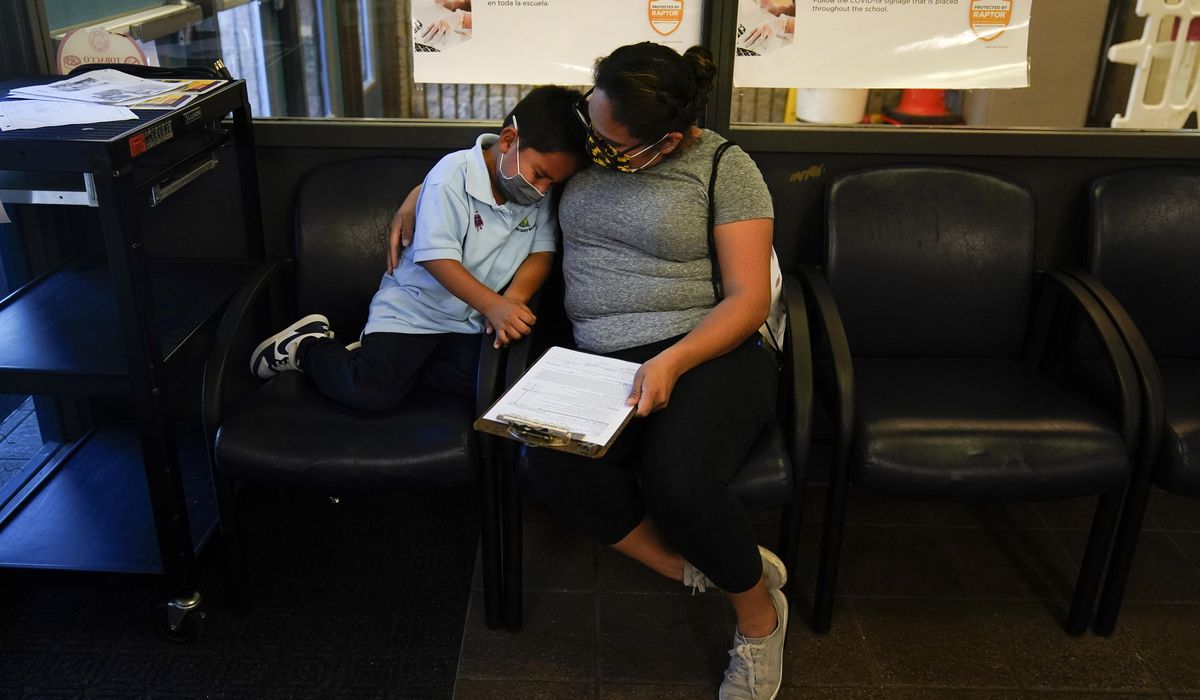The COVID-19 pandemic has created a mental illness crisis among America’s youth as it redirects their normal social activities into increased social media and screen time, according to public health officials.
Mitch Prinstein, chief science officer at the American Psychological Association, said Thursday that COVID-19 isolation has intensified suicidal thoughts and behavior among young Americans who were already struggling before the pandemic.
“Many youth have been suffering from mental health issues before the pandemic, and the last two years have made matters quite dire,” Mr. Prinstein said.
The psychologist said mental health care for young Americans must shift from an emergency mentality to a preventive strategy because it “cannot be restricted only to treatment of acute crises any longer.”
“The U.S. lags several other countries in a comprehensive, evidence-based, population-wide approach to social and behavioral wellness,” Mr. Prinstead said.
“If the pandemic has taught us anything, it is that our emotional well-being matters, and it is time we use science to improve people’s psychological lives,” he added.
Mr. Prinstein’s comments came in response to a growing number of public health officials who have declared a national emergency over spikes of depression, anxiety, and suicidal thoughts among young people whose parents may be unaware they are spending more time on social media and screens.
Surgeon General Dr. Vivek Murthy issued an advisory on Thursday “to highlight the urgent need to address the nation’s youth mental health crisis” that has arisen during the pandemic.
“The COVID-19 pandemic further altered their experiences at home, school, and in the community, and the effect on their mental health has been devastating,” Dr. Murthy wrote.
“Especially in this moment, as we work to protect the health of Americans in the face of a new variant, we also need to focus on how we can emerge stronger on the other side,” he added.
This advisory recommends that caregivers be attentive to children’s mental health “as an essential part of overall health, help children manage and learn from difficult emotions, provide competent mental health care, utilize community resources.
The surgeon general reported that before the COVID-19 pandemic, as many as 1 in 5 U.S. children aged 3 to 17 had a mental, emotional, developmental, or behavioral disorder.
Additionally, from 2009 to 2019, he said the share of high school students who reported persistent feelings of sadness or hopelessness increased by 40%, to more than 1 in 3 students.
During that same decade, the surgeon general reported that the number of high school students seriously considering attempting suicide increased by 36% and the number who had already made a suicide plan increased by 44%.
From 2007 and 2018, suicide rates among children ages 10-24 in the U.S. increased by 57%, and early estimates show more than 6,600 suicide deaths occurred among this age group in 2020.
The surgeon general’s advisory builds on a “Declaration of a National Emergency in Child and Adolescent Mental Health” that the American Academy of Pediatrics issued on Oct. 19.
The pediatricians’ group reported that more than 140,000 children have lost a primary or secondary caregiver during the pandemic.
“We are caring for young people with soaring rates of depression, anxiety, trauma, loneliness, and suicidality that will have lasting impacts on them, their families, and their communities,” the group wrote in a press release.
In a study of 608 parents of 9- to 13-year-old children, published in the Psychology of Popular Media journal on Nov. 29, researchers Nancy A. Jennings and Allison G. Caplovitz found that 83.7% said they were “getting more screen time than before the pandemic.”
Reached for comment Thursday, Ms. Jennings told The Washington Times in an email that it’s more important than ever for parents “to look beyond just the amount of time children use media and look at what they are doing with media and how it is impacting their lives.”
“With increased media use during the pandemic, particularly social media and individual devices like smartphones and laptops, it is more important than ever to reconsider our notions of ‘how much’ is ‘too much’ and really focus on what youth are getting out of this use,” Ms. Jennings wrote.
For more information, visit The Washington Times COVID-19 resource page.



















